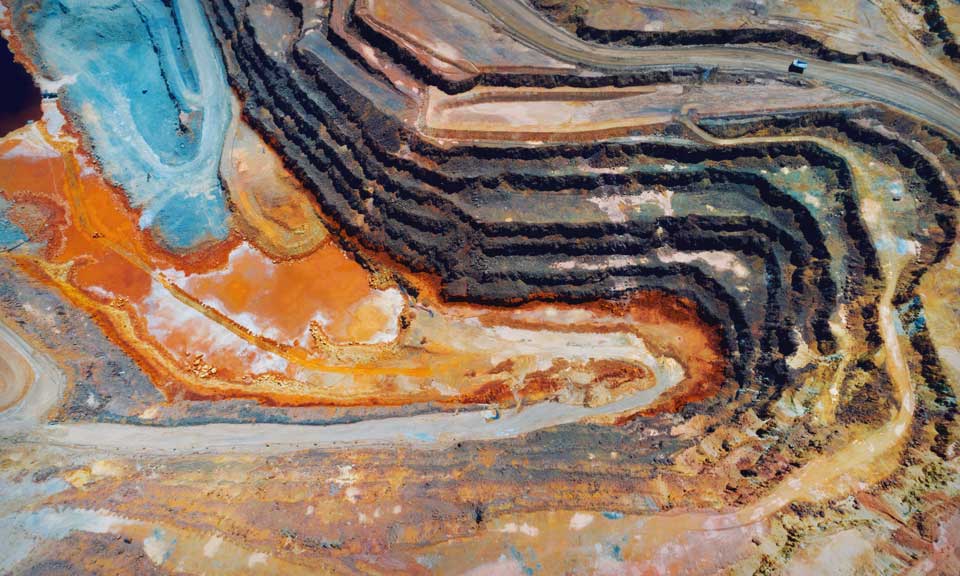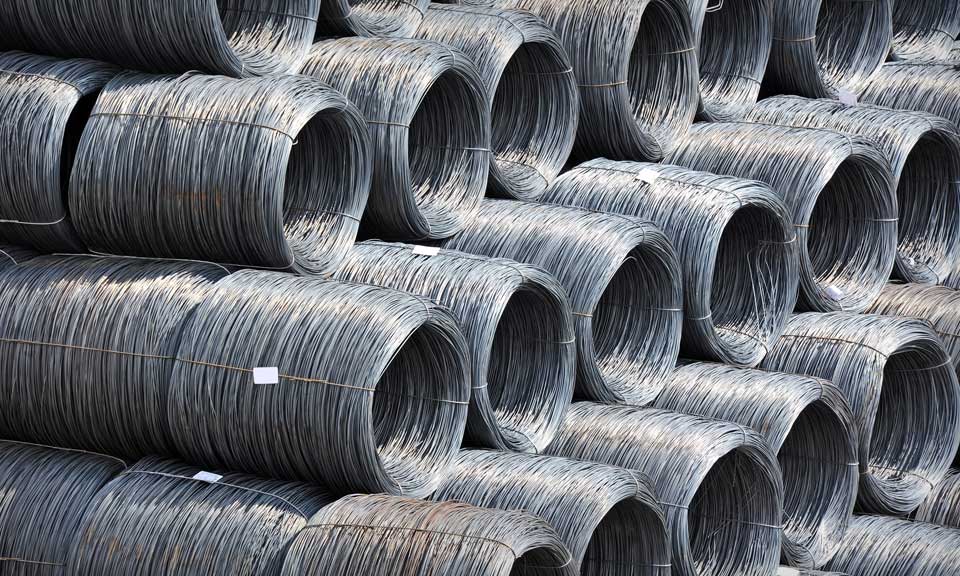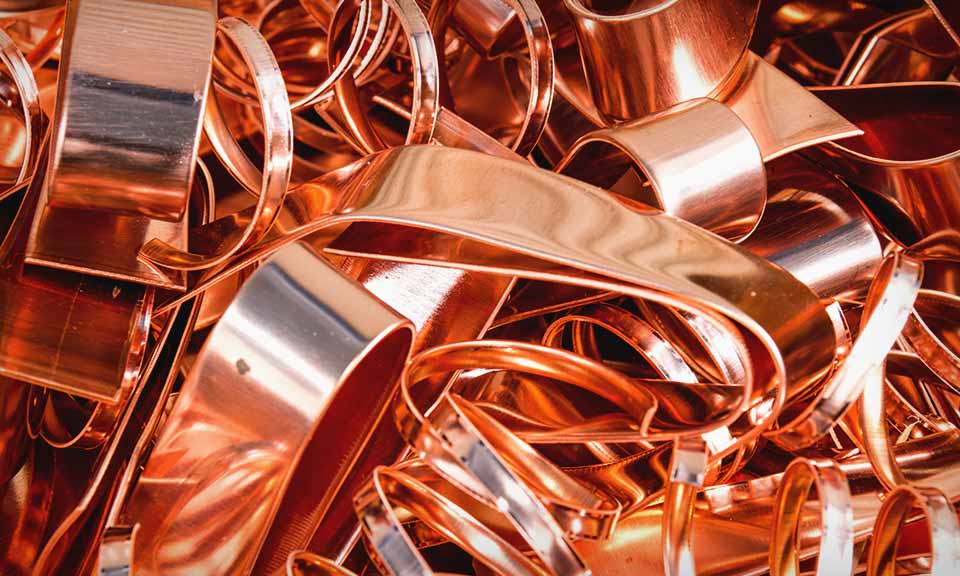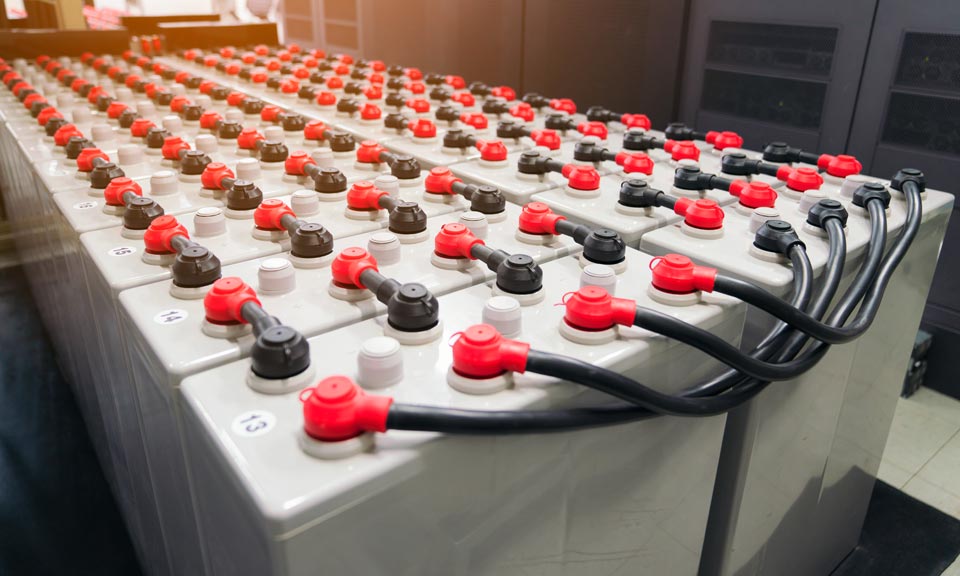Trade Review: Alumina market enters Q3 torn between unexpected surplus, curtailment risks

This report is part of the S&P Global Commodity Insights' Metals Trade Review series, where we dig through datasets and digest some of the key trends in iron ore, metallurgical coal, copper, alumina, and scrap. We also explore what the next few months could bring, from supply and demand shifts, to new arbitrages, and to quality spread fluctuations.
The global alumina market is set to continue grappling with trade flow disruptions in the third quarter caused by the Russia-Ukraine war and a surplus of Australian supply, with refinery and smelter restarts and curtailment risks in the Atlantic basin adding to the volatility.
Buyers in China are largely expected to remain on the sidelines in Q3, with Australian imports still priced significantly higher than domestic supply, while China's alumina exports are expected to remain high on unprecedented Russian demand as it positions itself as a key alternative to Australian alumina.
In the Atlantic basin, refinery restarts and smelter curtailments are expected to dominate price cues in Q3, with market participants generally anticipating premiums will ease, barring any major disruption to refinery operations.
Benchmark Platts FOB Australia alumina was assessed at $367/mt FOB June 30, with the FOB Brazil alumina differential at a $32/mt premium to Australian material, S&P Global Commodity Insights data showed. The Platts China ex-works Shanxi daily alumina assessment was steady for most of June and ended the quarter at Yuan 2,870/mt.
Platts FOB Australia alumina assessment rose early in the year to heights not seen since US sanctions on Russian aluminum giant Rusal and refinery output cuts at Brazil's Alunorte in 2018. Platts FOB Western Australia assessment peaked at $533/mt in Q1, surpassing the $484/mt high in Q4 2021.
However, Australia's March 20 ban on alumina and bauxite exports to Russia resulted in an immediate global ex-Russia glut, and prices plunged by nearly a third in a month to $371/mt FOB on April 20. The $353/mt FOB reached June 6 marked the bottom for the quarter, but remained slightly above the year-to-date low of $345/mt FOB on Jan. 7.
China's domestic prices also fell in Q2 on the back of new refining capacity and seaborne price declines, but less sharply as high production costs and smelter restarts stemmed the decline.
In the wake of Australia's export ban announcement, sellers rushed to offload cargoes destined for Russia to other buyers, pressuring prices lower.
Will Chinese alumina exports to #Russia remain elevated in Q3?
— S&P Global Commodity Insights Metals (@SPGCIMetals) July 6, 2022
"The sharpest plunge was when transacted prices fell $30/mt within 36 hours," a trader said, referring to two consecutive spot trades at $440/mt and $410/mt FOB Australia in early April. "Those were not the worst prices to sell, though."
While the pace of decline slowed after prices breached $400/mt FOB, market participants continue to expect the ex-Russia surplus to cap Australian prices in Q3, barring significant refinery cuts due to high energy prices or a change in Australia's export policy.
Nevertheless, Chinese buyers remain priced out of the market despite the glut by the high premium of Australian material to domestic alumina.
The implied premium exceeded $200/mt in March before easing after the export ban announcement, but remained prohibitive at around $60/mt at end June.
With its alumina supply pipeline from Australia and Ukraine closed, Russia hunted for alternative supplies across Asia in Q2.
Southeast Asia plugged part of its supply gap, but China's expanded refining capacity and its proximity to Russian Far East ports quickly enabled it to become Russia's largest supplier.
China's alumina exports surged more than 18 times on the year to 167,724 mt in April and made it a net exporter for the first time since February 2019, customs data showed. Exports rose further to 188,768 mt in May, with more than 80% destined for Russia.
Russia was procuring Chinese alumina at around Yuan 3,000/mt from northern ports at end June, according to sources familiar with the trade. While Yuan-denominated prices remained largely stable through Q2, the depreciation of the Yuan since end-April meant the exports became cheaper on a dollar basis.
Alumina from northern Shandong province comprised the bulk of the exports to Russia due to the proximity of its refineries to coastal ports and the use of imported Guinean bauxite.
Sources in China said the market would be monitoring refining costs and raw material prices in Q3 as higher prices of bauxite, caustic soda and coal could pressure refineries to taper production.
"The main risk to Russia's supply from China is if high-cost refineries are forced to curtail output due to rising production costs," a trader said. "Refineries could need to keep long-standing relations with existing customers and prioritize them, even if Russia is able to pay slightly more."
Nevertheless, global market participants expect China to keep up its supply to Russia, which provides a steady income stream amid a cloudy macroeconomic outlook.
Following smelter curtailments in Europe since late 2021, aluminum smelters in the US have become the new casualties of spiraling energy prices arising from the Ukraine conflict.
In June, Chicago-based Century Aluminum said it would suspend operations at its Hawesville, Kentucky smelter for up to a year due to the rising cost of energy. The smelter was operating at 80% of its 250,000 mt/year capacity at the time.
Alcoa also curtailed one of three operational potlines at its Warrick aluminum smelter in Indiana July 1 "due to operational challenges," taking 54,000 mt/year of production offline, although the operational issues were not related to power costs as the smelter has its own power generation.
The timing of the smelter curtailments coincides with the restart of the Jamalco refinery in Jamaica, which had halted operations due to a major fire in August 2021.
Jamalco, a 55:45 joint venture between Noble Group and Clarendon Alumina Production with a production capacity of 1.417 million mt/year, typically exports a large portion of its output to Europe, where Jamaican alumina is duty-free.
"This could have a double whammy effect on the alumina supply-demand complex, especially in the Atlantic basin, since supply is going up while demand is sliding," a trader said. "We may have yet to see the last of smelter curtailments this year given the skyrocketing energy prices while aluminum [prices] slump."
Any further smelter curtailments in the Atlantic could drive regional premiums higher, but also diminish support for the Brazilian alumina differential to the Pacific basin as demand would moderate on reduced smelting activity.
While smelter curtailments have been the focus since late 2021, some market participants said high costs of production could create risks for refinery operations in the Atlantic, especially in parts of Europe.
"The San Ciprian refinery in Spain could be facing high refining costs, and I'm not sure if it's sustainable with these energy prices," a trader said. Alcoa's San Ciprian smelter curtailed operations in December due to high power costs.

News
China's property sector has been in shambles over the past few years and remains the biggest drag on domestic steel demand. The property market has trended downwards in the first quarter of 2024. With no major recovery signs in new home sales, China’s new home construction starts are likely to remain on the downwards trajectory in the foreseeable future. The slowing property sector has triggered debt risks locally, leading Beijing to order local governments to downsize infrastructure projects, which has also undermined the growth momentum in infrastructure steel needs, adding to the demand slump. Click here to see full-size image

News
Plant will have an output of 80,000 mt/year Syrah delivered 10,000 mt of graphite fines to PT Indonesia BTR Chinese graphite exports "extremely limited" over Jan-Feb Chinese anode material producer BTR New Material Group is expected to start up an 80,000-mt/year active anode materials plant at Indonesia's Morowali Industrial Park, Central Sulawesi province, by the end of 2024, Australia-listed graphite producer Syrah Resources said April 8. The $478 million AAM plant will process synthetic graphite, supplied by Syrah and other suppliers, into anode materials. At the same time, Australia's Evolution Energy Minerals, in which BTR owns a 9.9% stake, is expected to supply 100% of the fine flake graphite produced from its Chilalo project in Tanzania to BTR for three years. Syrah said on the same date that it delivered a 10,000-mt break bulk shipment of natural graphite fines from its Balama graphite operation in Mozambique to PT Indonesia BTR New Energy Materials in Indonesia. The future of Syrah's Balama operation, which has a production capacity of about 350,000 mt/year, will be determined by the impact of China's export controls on the global market. China implemented export controls on natural graphite and its products, effective Dec. 1, 2023 . Citing January-February data from China's General Administration of Customs, "natural graphite fines and coarse flake exports were extremely limited," Syrah said. "Purified spherical graphite exports were 25%-40% of the 2023 monthly average and limited to South Korea." The 10,000-mt cargo to BTR is Syrah's "first large volume natural graphite sale to a battery supply chain participant destination outside China," Syrah said, following a trial shipment made in the first quarter of 2024. The delivery of the graphite cargo to Indonesia comes after Syrah signed a six-year deal to supply natural graphite fines to South Korea's Posco Future M in March . Data from S&P Global Commodity Insights showed that Platts assessed spot prices of natural flake graphite at $465/mt CIF Northeast Asia on April 5, flat from the session before, and spherical graphite at $2,060/mt CIF Northeast Asia, also unchanged from the previous session. Platts Connect: News & Insights (spglobal.com)

News
More processing of CAM, battery precursors for qualification with OEMs Center to focus on reducing CAPEX, OPEX; improving metal recovery rates Company to implement processes at commercial scale at planned Teesside recycling hub UK-based clean technology company Altilium has completed the expansion of its cathode active materials and EV battery recycling innovation center in Plymouth, it said April 5. The site has been expanded from 10,000 sq ft to 18,000 sq ft with the staff headcount increased to 70, it said in a statement. Without disclosing specific volumes, the company said the expansion would allow it to process larger volumes of CAM and battery precursors for qualification with OEM’s and battery cell manufacturers. Work completed on the facility includes a major electrical upgrade required to power the recycling facility, start-up EV battery recycling test bed and equipment procurement. Altilium said the innovation center, known as Act 2, would focus on reducing CAPEX and OPEX of future plants and improving the rates of metal recovery, particularly for lithium. The company plans to implement these processes at its planned Teesside recycling hub (Act 4). Announced in November, the Teesside facility, designed by engineering consultancy Hatch, will have the capacity to process approximately 50,000 mt/year of black mass. When batteries are manufactured or reach their end of life, production offcuts or used batteries can be collected, dismantled and shredded to produce black mass, from which critical metals including lithium, nickel, cobalt and manganese can be extracted. The plant will comprise two processing facilities: a chemical plant producing 95,000 mt/year of battery precursors including lithium carbonate and nickel sulfate, and a cathode active material plant producing 30,000 mt/year of CAM. The company said the facility, once fully operational, will meet around 20% of the UK’s CAM requirements. The recycling of black mass has become increasingly important as a supplement to virgin material supply, as well as to reduce the carbon footprint in the battery supply chain. In addition to its Teesside battery recycling plant, Altilium is also retrofitting its existing SX-EW hydrometallurgy plant in Bulgaria to produce battery intermediates MHP and lithium sulfate. The plant is being upgraded to process up to 8,000 mt/year of black mass, with commercial operations expected to start this year. On Feb. 22, SQM Lithium Ventures said is had increased its investment in Altilium by $9.43 million, bringing its total contribution to $12 million. The funding, done through SQM's investment arm SQM Capital Ventures, was part of the Series A financing round. Altilium’s Series B financing, which will focus exclusively on the Teesside project, is expected to launch during 2024, with the plant itself expected to take around 36 months to construct. Platts, part of S&P Global Commodity Insights, assessed cobalt payables for Ni-Co black mass ex-works Europe at 52% basis European cobalt metal 99.8% April 2, down 3 percentage points on the day and on the week. Platts assessed nickel payables at 52% basis LME nickel April 2, also down 3 percentage points on the day and on the week. Platts Connect: News & Insights (spglobal.com)

News
To build on EU's Critical Raw Materials Package Support, accelerate implementation of sustainable critical minerals projects The EU, US and other countries in the Minerals Security Partnership (MSP) have launched the MSP Forum to expand cooperation on critical raw materials required for the global green and digital transitions, the European Commission said in an April 5 statement. The MSP partners were joined by Kazakhstan, Namibia, Ukraine and Uzbekistan to launch the platform, it said, which will be co-led by the US and the EU. The EC added that the recently announced Critical Raw Materials Club would become a full part of the MSP Forum, bringing together resource-rich countries and countries with high demand for the resources. “This will create a greater, more ambitious joint initiative linked to the Minerals Security Partnership, where the European Commission represents the EU,” it said. The MSP Forum aims to build on the EU's Critical Raw Materials Package adopted in March 2023 and will form a project group to support and accelerate the implementation of sustainable critical minerals projects, the EC said. The forum will also create a policy dialogue to identify policies for boosting sustainable production and local capacities, facilitate regulatory cooperation to foster fair competition, transparency and predictability and promote high environmental, social and governance standards in critical raw material supply chains, the EC said. “The MSP Forum is a cornerstone of the EU’s strategy to secure a more sustainable supply of critical raw materials,” EC Executive Vice-President and Commissioner for Trade Valdis Dombrovskis said, adding that it would be key to reducing vulnerabilities and achieving the green and digital transition in Europe and globally. “With this global initiative, we want to make sure that international cooperation is up to the task of increasing investment, diversifying supply chains and bringing sustainable benefits to all parties,” he said. Critical raw materials are needed for numerous technologies in the energy transition, resulting in high demand, although supply is hindered by geopolitical, environmental and social risks and challenges. The EC estimates that EU demand for lithium used in electric vehicle batteries and energy storage will increase twelve-fold by 2030. Platts, part of S&P Global Commodity Insights, put both battery grade lithium carbonate and hydroxide assessments at $14,500/mt CIF Europe on April 4, both stable on the day and on the week, and down from $15,800/mt on Jan. 2. The EC said any partners that were ready to commit to the key MSP principles would be allowed to join the MSP Forum, noting that these principles included diversification of global supply chains and high environmental standards, good governance and fair working conditions. The co-leaders and current MSP partners plan to reach out to prospective members in North and South America, Africa, Asia and Europe to expand the Forum’s participation and start working within the project and policy dialogue groups. Besides the EU and US, the current MSP partners are Australia, Canada, Estonia, Finland, France, Germany, India, Italy, Japan, Norway, South Korea, Sweden and the UK. EU, Uzbekistan sign MOU In a separate statement, the EC announced that the EU and Uzbekistan had signed a memorandum of understanding to launch a strategic partnership on critical raw materials, which it said “underscored the partners' shared commitment to enhance cooperation in the field of critical raw material.” Under the partnership, the EU and Uzbekistan will work on establishing an operational roadmap with concrete implementation actions, the EC said. The partnership will focus on cooperating on the integration of sustainable value chains, increasing the resilience of supply chains and enhancing the transparency of measures related to investments, operations and exports. It will also focus on the mobilization of funding for projects resulting from the partnership and the development of infrastructure required for the development of value chains, as well as on cooperation to achieve sustainable and responsible production and sourcing of critical raw material, on research and innovation, and on building capacity to enforce relevant rules and on developing training and skills. Platts Connect: News & Insights (spglobal.com)